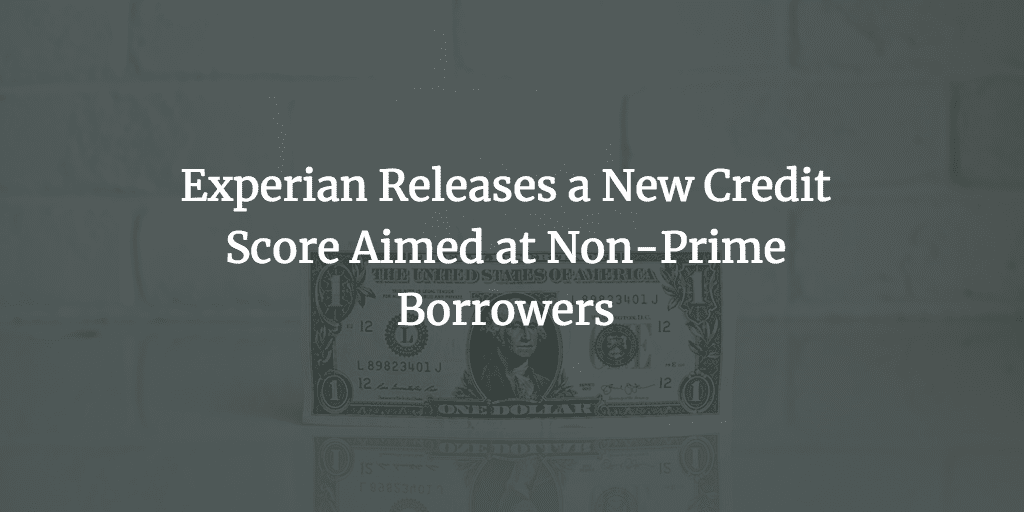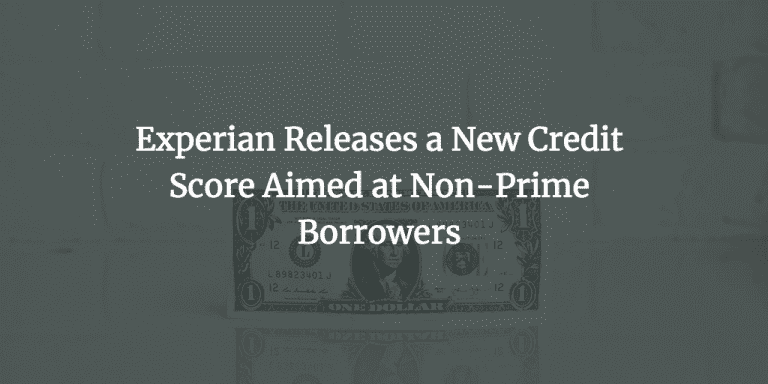
The ranks of thin file consumers continues to grow in this country. According to Experian these consumers now number 25% of the total U.S. population. These are people with five or fewer items in their traditional credit history.
Clarity Services is a credit bureau covering this non-prime population (you can listen to my podcast with Clarity founder Tim Ranney from last year). They have 65 million consumers in their database with a majority of these people not being covered by the traditional credit bureaus. Experian has been buying data from Clarity Services for many years but they decided last year to acquire the company.
Since the acquisition they have worked with the Clarity Services team to build a new score specifically for the non-prime segment. They are calling it the Clear Early Risk Score. As the name implies this new score is designed to give lenders a clearer view of the risk of these thin file consumers, many of whom should not be categorized as subprime.
I spoke with Alex Lintner, the president of Experian Consumer Information Services, last week to learn more about this new score and what it means for consumers.
At the same time Experian has been working on including more alternative forms of data to help expand their database to cover more people. Alex’s official comment from the press release explains why they created this score:
It’s our number one goal to improve credit access for millions of consumers. An increasing number of consumers in this country are relying on alternative finance products, and these individuals should be visible and able to build or rebuild credit with the positive payments they make. This is another step forward in our strategy to expand reach and be more inclusive. We are committed to helping create a better path for these consumers to secure affordable credit and financial opportunities.
When I asked Alex how this new score will be used in conjunction with their traditional FICO score he said it will be used in two ways:
1. When the consumer has no traditional file and therefore no credit score it will be used as an independent score.
2. The consumer may be originally scored as subprime and this new score could provide new information that may lead to a different conclusion regarding risk.
As I see it there are many millions of people who are creditworthy even if they have a thin file or no file all. The challenge is identifying the good risks from the bad risks. It makes sense that all kinds of payment history, particularly any loan payments, should be taken into account when evaluating the risk of the potential borrower.
The reality is that people are going to find credit where they can. The more we can move people away from high cost products into responsible lending products the better off consumers will be.
Now, I don’t pretend to think the new Clear Early Risk Score from Experian will be a panacea for the subprime population. But it will help identify more people who should be using lower cost credit products. This will allow the online lenders of term loan products to expand their credit box without taking on additional risk. And millions more consumers will be better off.
The promise of fintech is to expand access to credit in a responsible way. The Clear Early Risk Score from Experian is a real attempt to do just that.


